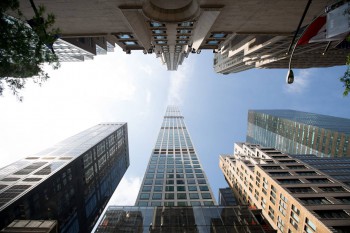(Sourced from The Straits Times)
Property has always been a popular choice for investors’ diversified portfolio. Given the relatively high (and increasing) home prices in Singapore, it is no wonder that many Singaporeans have turned to investing overseas, prompted in part by the strong Singapore dollar.
This was especially the case when the Additional Buyer’s Stamp Duty, first introduced in 2011 for Singaporeans buying third and subsequent properties, was imposed on second homes from January 2013. The total value of overseas properties snapped up by Singapore buyers hit a record $1.67 billion in the first half of 2013, although this moderated to $0.4 billion in the first half of last year, according to Monetary Authority of Singapore data.
Properties in Britain, Malaysia and Australia have been popular for some years, but Singaporeans are increasingly buying real estate in Japan, the Philippines, Vietnam, Cambodia and Thailand.
The Straits Times talked with Mr Marc Townsend, CBRE Vietnam managing director, and Mr Keff Hui, a broker at Mortgage Supermart Singapore, to give property reporter Rennie Whang the lowdown on some important factors to consider before investors jump in.

What is the market like?
A flat or declining residential market, or a quiet market, is not ideal. “You want to be buying into a lively market, where there is hopefully some potential for prices to rise further,” said Mr Townsend.
What are the rules on foreign ownership?
In Australia, for example, foreign investors can buy only newly built residential properties and must obtain prior approval from the Foreign Investment Review Board (FIRB) for some property types. In Thailand, foreign freehold ownership is not allowed, but foreigners can buy freehold land for manufacturing purposes with Board of Investment approval.
Foreign ownership restrictions in emerging Asian markets are expected to be relaxed gradually in the coming years as they seek to attract international capital, CBRE noted in a recent report. “However, investors should be aware of restrictions on capital repatriation and currency volatility as countries look to ensure they remain cost-competitive.”
 What are rules on foreign exchange and taxes?
What are rules on foreign exchange and taxes?
Many countries have rules on foreigners bringing money into the country and taking it out. Taxes can come in many forms, from transaction taxes to taxes for holding the property. As tax policies may need some interpreting and rates can change frequently, foreign buyers should speak to a lawyer and an accountant when entering a new jurisdiction.
What are foreign exchange risks?
In some markets, tenants may want to rent in their local currency rather than in the US dollar or the Singapore dollar. Buyers should seek markets where the local currency has proven stable over time.
What is the property like?
This includes a check on the quality of the developer, including if it is known to be reliable and will complete projects on time. In some markets, location is essential, whereas in others with good transport infrastructure such as Bangkok or Singapore, it could be less of an issue.

(Source: Active Rain)
What is the “rentability” of the property, and what kind of unit to buy?
A potential investor should find out if it is easy to get tenants and where they would be from. This would include how much rent tenants in the market can typically pay and the features they may want in an apartment.
While everyone would love to snag a penthouse cheaply, it may not mean that a tenant would fork out more rent per sq ft than, say, for a two-bedroom unit. For example, the rental market in Vietnam sees many Asian expatriates who often work in manufacturing. They may not have the high rental allowances of expatriates in other countries with large, fast- moving consumer goods, finance or telecommunications sectors, Mr Townsend noted. “It’s better to buy according to what rent potential tenants can give you, and questions on yield expectation are important,” he said.
What are financing options for overseas properties?
There are plenty of options to finance the property, either in Singapore dollar-denominated or foreign-currency-denominated mortgages. Foreign lenders may also offer additional options, such as flexibility for dual currency switching, fixed rates, and interest-only and interest-offset mortgages, depending on country of location, said Mr Hui.
How does the timeline for property purchases in Singapore differ from popular overseas markets?
While new properties sold in Singapore are on progressive payment schemes, most purchases in popular overseas markets – Australia, Britain and Malaysia, for example – are still typically sold under the deferred payment scheme.
This is where a buyer purchases the unit with a small 10% down-payment deposit, with the remaining 90% deferred till completion. The payment timeline for completed overseas property purchases is similar to that in Singapore where the buyer places an upfront booking or option fee, with the remaining to be settled upon completion one to three months later.

For more property investment articles and property news, check out Estate123 Insight!



![[Infographic] Disadvantages Faced By Chinese Investment Funds in Malaysia](https://insight.estate123.com/wp-content/uploads/2017/03/disadvantages-chinese-investment-funds-in-malaysia-e1490084718751-400x264.png)

